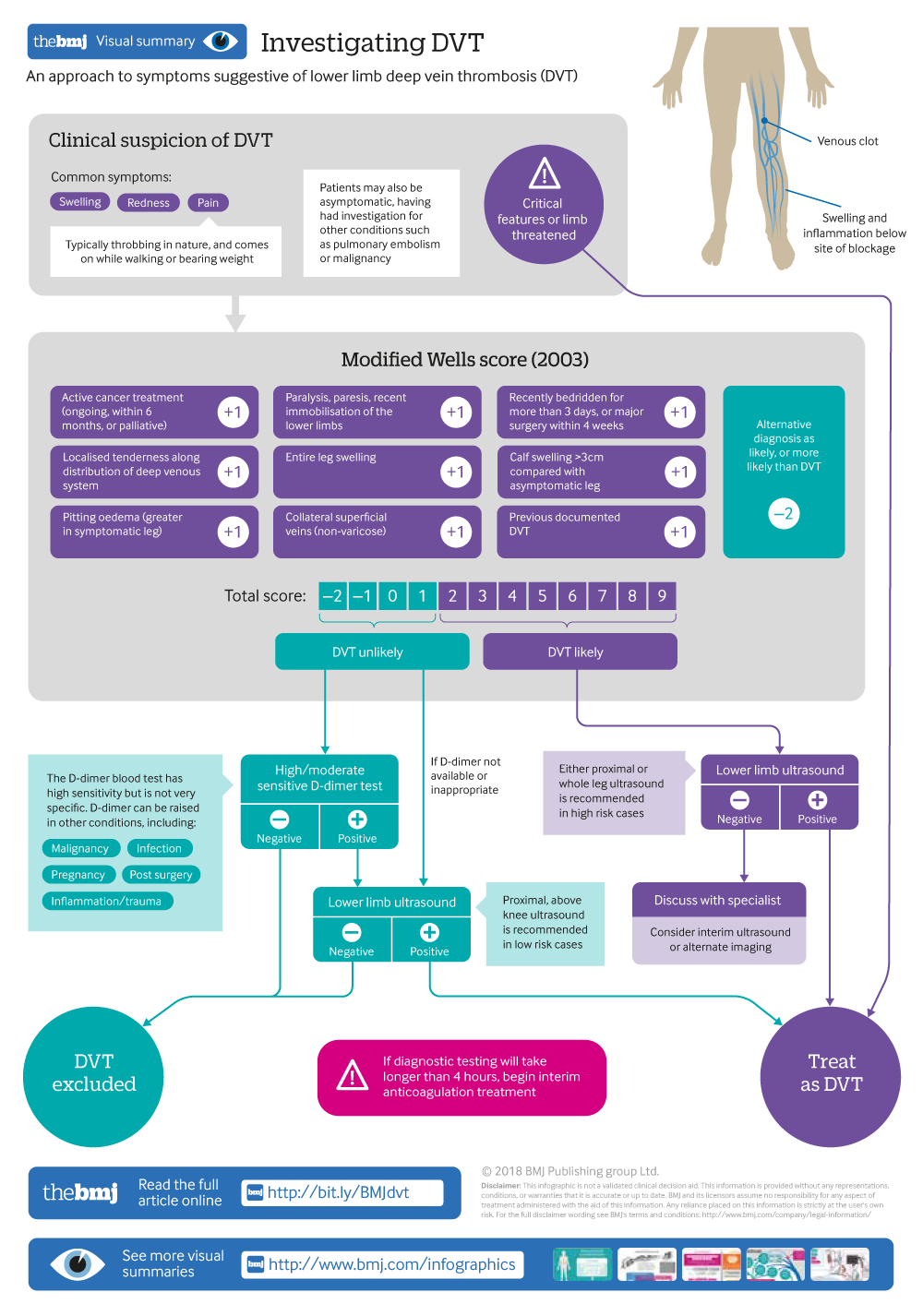Intended for healthcare professionals
Rapid response to:
Practice
Clinical Update

Deep vein thrombosis
BMJ 2018; 360 doi: https://doi.org/10.1136/bmj.k351 (Published 22 February 2018) Cite this as: BMJ 2018;360:k351
Investigating DVT
An approach to symptoms suggestive of lower deep vein thrombosis (DVT)
Rapid Response:
Progestogen use Re: Deep vein thrombosis
Deep venous thrombosis and progestogens
Studds and colleagues list “Oestrogen therapy” as a cause of deep venous thrombosis but “Progestogen Use” was not included.1 Oestrogens should not be given to women who still have a uterus because of inducing endometrial hyperplasia and endometrial cancer. In contrast, progestogens are given to nearly women in westernised countries which has caused breast cancer epidemics.
By 1969, there was evidence that vein complaints, including painful distended veins, leg cramps, thrombophlebitis and thromboembolism, occurred in 3% to 50% of healthy women taking combined oral contraceptives (OCs).2 Vein complaints related to dilatation of endometrial sinusoids, with or without stromal condensation. Progestogens with inherent estrogenic activity, norethisterone acetate and ethynodiol diacetate, caused most veins complaints, especially when combined with higher doses of estrogens.
In 2011 Lidegaard et al confirmed that OCs containing newer progestogens (desogestrel, gestodene, or drospirenone) caused at least twice the risk of venous thromboembolism than older progestogens.3 Thomson et al found that desogestrel 150ug and drospirenone 3 mg increased endothelium-dependent vasodilation in large and small peripheral microvasculature, which further confirmed vasodilation in the aetiology of OC induced thrombosis.4 Acne-treating oestrogenic drospirenone and desogestrel caused more thrombosis than acne-causing androgenic levonorgestrel.
In 2015, Vinogradova et al collected 10,500 cases of VTE and 42,000 matched controls in UK general practice databases. 68% of cases and 57% of controls were analysed following exclusions mostly for pregnancy or hysterectomy. Any current use of combined OCs gave a 3-fold increased risk of idiopathic venous thromboembolism compared with no use in the past year. Newer third generation progestogens doubled the risk compared with older progestogens. Risks for desogestrel (4.28x), gestodene (4.27x), drospirenone (4.12x) and cyproterone (4.27x) were compared with levonorgestrel (2.38x), norethisterone (2.56x) and norgestimate (2.53x).
There has also been a dramatic increase in autoimmune diseases, such as systemic lupus erythematosus (SLE) and the more common antiphospholipid or Hughes Syndrome with a lifetime’s increased risk of thrombosis. SLE can flare during pregnancy or the puerperium. SLE incidence increased from 1.51 to 124.0 per 100,000 from 1950-1979 with a sex ratio of nine women to one man.6
Venous thrombosis with pulmonary embolism is a preventable cause of death in young women who could use non-hormonal forms of contraception. www.harmfromhormones.co.uk
1 Stubbs MJ, Mouyis M, Thomas M. Deep vein thrombosis. BMJ 2018;360:k351doi: https://doi.org/10.1136/bmj.k351 (Published 22 February 2018)
2 Grant ECG. Venous effects of oral contraceptives. BMJ 1969;2:73-7.
3 Lidegaard O, Nielson LH, Skovlund CW, Skjeldestad FE, Lokkegaard E. Risk of venous thromboembolism from use of oral contraceptives containing different progestogens and oestrogen doses: Danish cohort study 2001-9. BMJ2011;343:d6423.
4 Thomson AK, Przemska A, Vasiloupou D, Newens KJ, Williams CM.Combined oral contraceptive pills containing desogestrel or drospirenone enhance large vessel and microvasculature vasodilation in healthy premenopausal women. Microcirculation. 2011 Mar 7. doi: 10.1111/j.1549-8719.2011.00094.
5 Vingradova Vinogradova Y, Coupland C, Hippisley-Cox J. Use of combined oral contraceptives and risk of venous thromboembolism: nested case-control studies using the QResearch and CPRD databases. BMJ 2015;350:h2135.
6 Grant ECG. Lupus erythematosus. Lancet 2001;358:586
Competing interests: No competing interests